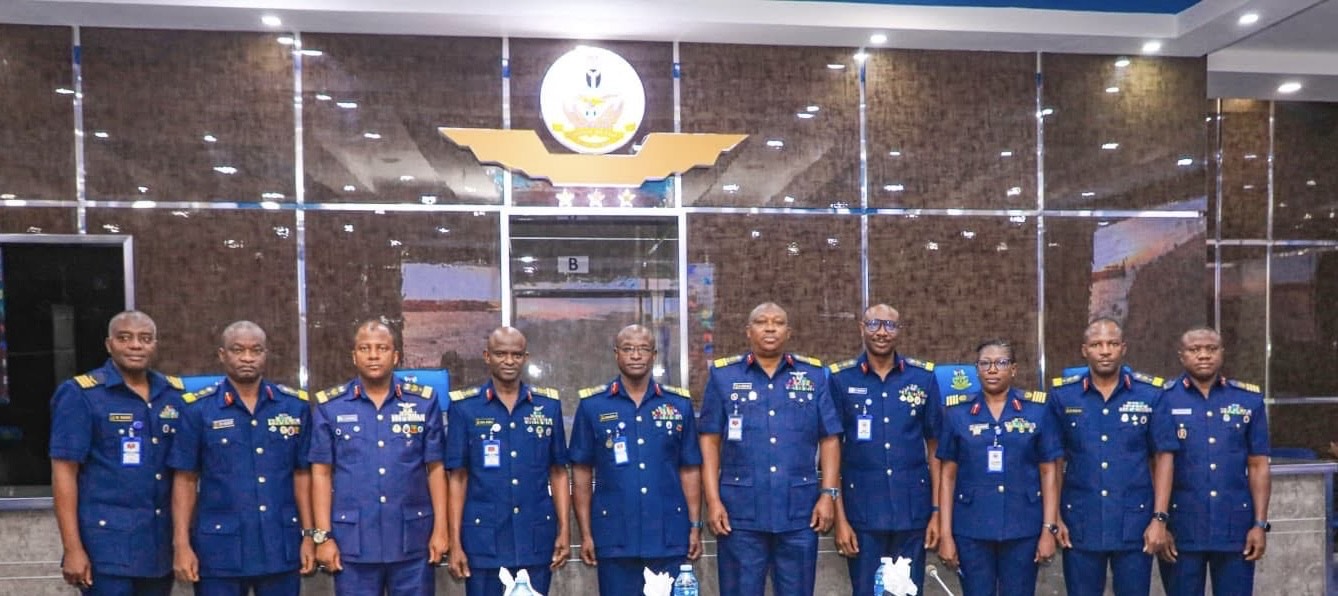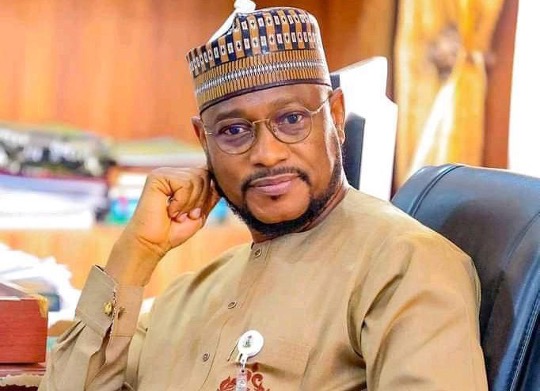From the North-East to the North-West, and across joint theatres of operation, airstrikes have become a crucial component of Nigeria’s counterinsurgency and internal security efforts. But alongside this reliance on airpower comes the challenge of avoiding harm to non-combatants living within or near conflict zones. Several times, erroneous strikes often caused by skewered and complicated intelligence have resulted to civilian casualties, thus undermining public confidence and straining civil-military relations. In recognition of these past lapses, Chiemelie Ezeobi writes that the NAF, under the leadership of the Chief of the Air Staff, Air Marshal Hasan Bala Abubakar, is redefining its approach—placing protection of civilians at the heart of its operational strategy. From humanitarian restitutions to the recent creation of a Civilian Harm Mitigation and Response Board, the NAF is truly reshaping the narrative around airpower—where compassion, accountability, and precision go hand in hand
“The Nigerian Air Force is committed to delivering accurate and timely air responses for our ground forces. From surveillance to strikes, and logistics—we will do all to ensure you fight effectively and return home safely.”
That was the clear assurance given by the Chief of the Air Staff (CAS), Air Marshal Hasan Bala Abubakar, on June 24, 2025. To stakeholders, it was more than a ceremonial statement as it went beyond assurances for troops to underscore a renewed doctrine of precision, compassion, and accountability in air operations, especially with regard to the protection of civilians caught in the crossfire of conflict.
Civilian Protection in Conflict Zones
Across the world, civilians are frequently the unintended victims of armed conflict—injured, displaced, or killed while simply living near military targets. The outcomes are either loss of life or injury and even profound psychological trauma.
Central to humanitarian law is the principle of Protection of Civilians (PoC). According to the 1949 Geneva Conventions and their 1977 Additional Protocols, civilians and non-combatants must never be targeted and must be spared from the ravages of war. Yet, even with increased awareness, full implementation in modern combat zones remains a challenge.
Airstrike Miscalculations
In Nigeria, over time, erroneous airstrikes have frayed relations between military forces and the civilian population as such incidents undermine counterinsurgency efforts and the vital civil-military trust necessary for intelligence-sharing and post-conflict stability.
To address this, stakeholders have consistently harped on the need for strengthened coordination between air and ground units, and enhanced operator training with protection of civilians as one of them.
A Human-Centred Airpower Approach
Understanding the need to protect civilians from harm, under the current leadership, the NAF has shown that airpower is not only about dominance in the skies—it is about compassion on the ground.
Guided by Air Marshal Abubakar’s philosophy of “People First, Mission Always,” the NAF has incorporated community outreach, humanitarian relief, and rapid redress for civilian harm as part of its operational ethos.
“From rapid compensation for victims of unintended airstrikes to fostering stronger community ties, these actions are reflective of the Nigerian Air Force’s values of professionalism, responsibility, and respect for human dignity,” said Air Commodore Ehimen Ejodame, Director of Public Relations and Information. “For the NAF, protecting the lives and property of Nigerians is not just a constitutional duty; it is a sacred trust.”
CHMR Board: Institutionalising Accountability
However, beyond the humanitarian aspect was the need for deliberate steps to ensure its operations reflect military precision as well. One of the major developments in this area has been the Nigerian Air Force’s institutionalisation of Civilian Harm Mitigation frameworks aimed at restoring public confidence and ensuring precision in air operations.
Inaugurated on July 8, 2025, the Civilian Harm Mitigation and Response (CHMR) Board was charged with implementing the Nigerian Air Force’s Civilian Harm Mitigation Action Plan (CHMR-AP) across all operational levels, including in joint theatres of engagement, which highlights NAF’s deepening commitment to international humanitarian law and the integration of accountability into air operations.
Speaking on behalf of the CAS during the inaugural session, Air Vice Marshal Ibikunle Daramola, stated, “We will continue to adapt and refine our strategies to minimise harm and strengthen the legitimacy of our operations.”
Representing the CAS, Air Vice Marshal Ibikunle Daramola, NAF Chief of Civil Military Relations,
emphasised the NAF’s dedication to executing missions with precision, responsibility, and humanity. “We will continue to adapt and refine our strategies to minimise harm and strengthen the legitimacy of our operations”.
Essentially, the CHMR Board was tasked with overseeing the full implementation of the CHMR-AP across all levels of NAF operations, including joint theatres. Key functions include compiling data on civilian harm incidents, conducting harm assessments, analysing patterns, and tracking progress through the Civilian Harm Assessment and Investigation Cell.
Accordingly, information will be sourced from internal combat assessments as well as reports from partners, NGOs, civil society, and open sources. This mechanism ensures lessons are drawn, accountability is enforced, and progress is measurable.
Air Marshal Abubakar described the board as a vital institutional mechanism that reinforces NAF’s evolving strategy to balance operational effectiveness with ethical responsibility.
“Every innocent life matters,” he stated, adding that this initiative is aimed not only at minimising civilian casualties but also at building public confidence and transparency in NAF operations. By institutionalising these measures, the NAF is setting a new benchmark for responsible air power application while reaffirming its mission to protect the Nigerian people.
Engaging Global Partners
Taking it a step further, the NAF had earlier on July 1, 2025, deepened its commitment to CHM by hosting Defence Advisers and members of the diplomatic corps at a strategic session at the Defence Intelligence Agency (DIA). Participants included representatives from the United States, United Kingdom, France, Germany, Finland, and other partner nations. The event served as a platform to present the CHMR-AP and exchange views on best practices for civilian protection in conflict zones.
NAF’s internal mechanisms—such as its Directorate of Human Rights and Gender Affairs (DHRGA)—were also showcased, with particular attention to how the Service addresses Sexual Exploitation and Abuse (SEA) and Gender-Based Violence (GBV).
The meeting concluded with a shared commitment to capacity-building and collaboration, reinforcing that civilian protection must remain central to modern military doctrine.
Strategic Visit to Operation FANSAN YAMMA
Still in line with his vision for a mission-ready and people-focused NAF, the CAS had also last month, sent a delegation led by AVM Ibikunle Daramola to Operation FANSAN YAMMA, Sector 2, to reaffirm the imperative of protecting civilian lives in the ongoing counterinsurgency operations in the North West.
Speaking to frontline personnel, AVM Daramola noted, “The trust of the people remains our most potent force multiplier.” He urged all forces to maintain both tactical precision and strategic empathy, underscoring that credible public intelligence was essential to neutralising threats without harming innocent lives.
The visit further reinforced the Air Force’s adherence to international humanitarian law and its commitment to balancing operational intensity with compassion and community engagement.
The Road Ahead
For the Nigerian Air Force, the future of military operations lies in precision, accountability, and humanity. From airmen in the sky to communities on the ground, every life touched by conflict matters. Through its evolving doctrine, structured institutional responses, and engagement with national and international stakeholders, the NAF is gradually setting a new standard—where power is not just about strength, but about stewardship.
In the words of Air Marshal Abubakar: “Every mission must reflect the highest level of responsibility. We owe it to the people we protect, to ourselves, and to the values we stand for.”
Through a combination of institutional reforms, public engagement, and a renewed commitment to international humanitarian norms, the Nigerian Air Force is sending a strong message: that civilian protection is not a secondary concern, but a strategic priority.


















Leave a comment